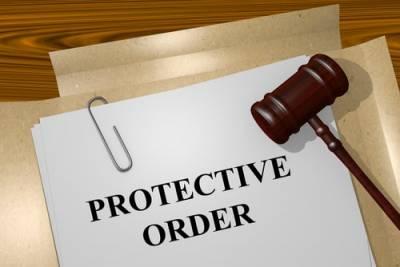 Free consultation
Free consultation630-953-3000
Your Voice Matters
 Every year thousands of Americans make the difficult decision to pursue a divorce. For fathers navigating the divorce process, the chances of winning significant custodial privileges can seem less than favorable. In all reality, there are a number of steps one can take to ensure that you are awarded parental responsibilities. Below we will discuss some of the steps you can take as a single father to ensure that you can maintain a significant relationship with your child, after your divorce. If you are looking to secure child custody, it is time to seek out the help of a qualified attorney.
Every year thousands of Americans make the difficult decision to pursue a divorce. For fathers navigating the divorce process, the chances of winning significant custodial privileges can seem less than favorable. In all reality, there are a number of steps one can take to ensure that you are awarded parental responsibilities. Below we will discuss some of the steps you can take as a single father to ensure that you can maintain a significant relationship with your child, after your divorce. If you are looking to secure child custody, it is time to seek out the help of a qualified attorney.
Despite the narrative that fathers have more difficulty securing child custody than mothers, thousands of fathers are granted significant parental responsibilities, each and every year. That being said, there are a couple of simple steps you can take to increase the likelihood of securing significant custodial privileges through the divorce process.
 Despite the fact that thousands of Americans make the decision to pursue a divorce each and every year, the divorce process is rarely emotionally easy. The emotions of a divorce can be amplified when a spouse begins acting in an erratic or hostile manner. It is important to understand the steps you should take when a spouse begins behaving in this way, and the simple mistakes you can avoid throughout the divorce. The first step you can take as you begin the divorce process is hiring a qualified and skilled divorce attorney.
Despite the fact that thousands of Americans make the decision to pursue a divorce each and every year, the divorce process is rarely emotionally easy. The emotions of a divorce can be amplified when a spouse begins acting in an erratic or hostile manner. It is important to understand the steps you should take when a spouse begins behaving in this way, and the simple mistakes you can avoid throughout the divorce. The first step you can take as you begin the divorce process is hiring a qualified and skilled divorce attorney.
It is important to understand the fact that the divorce process can be challenging for both parties, and you should be prepared to react to unpredictable and unprecedented behavior from your spouse. Below are a few steps you can take if your spouse begins acting hostile throughout your divorce:
 When you and your spouse come to the difficult conclusion that you need to consider a divorce, it is entirely common to experience a wide array of emotions. While the divorce process can be emotionally turbulent, your ability to remain calm and composed throughout the entirety of the process can be monumentally important to you and your future. Below we will explore some of the simple mistakes that can cost you during the divorce process. If you and your spouse are considering pursuing a divorce, it is time to speak with a qualified divorce attorney.
When you and your spouse come to the difficult conclusion that you need to consider a divorce, it is entirely common to experience a wide array of emotions. While the divorce process can be emotionally turbulent, your ability to remain calm and composed throughout the entirety of the process can be monumentally important to you and your future. Below we will explore some of the simple mistakes that can cost you during the divorce process. If you and your spouse are considering pursuing a divorce, it is time to speak with a qualified divorce attorney.
At J. Aldrich Law, P.C., we fully recognize the fact that a divorce can be complicated and emotionally trying. We have also witnessed dozens of people make mistakes through the divorce process that cost them greatly in the long-term.
 Throughout 2018, over 26,000 DUI arrests were made throughout the state of Illinois. A DUI conviction can come with serious legal ramifications, including loss of driving privileges. In the state of Illinois, a first-time DUI conviction constitutes a Class A Misdemeanor as well as a one-year license revocation period. In 2018, 90% of all drivers arrested on DUI charges, that were eligible for a suspension, lost their driving privileges. If you have been charged with a DUI, you need to seek out the help of a qualified legal professional.
Throughout 2018, over 26,000 DUI arrests were made throughout the state of Illinois. A DUI conviction can come with serious legal ramifications, including loss of driving privileges. In the state of Illinois, a first-time DUI conviction constitutes a Class A Misdemeanor as well as a one-year license revocation period. In 2018, 90% of all drivers arrested on DUI charges, that were eligible for a suspension, lost their driving privileges. If you have been charged with a DUI, you need to seek out the help of a qualified legal professional.
In the state of Illinois, a first-time offender can lose their driving privileges due to a DUI conviction or simply refusing to submit to chemical testing. In both instances, the driver is eligible for a Monitoring Device Driving Permit (MDDP). An MDDP will allow drivers to operate their registered personal vehicles, at all times. In order to receive an MDDP, one must submit an MDDP program application. After receiving your application, the Secretary of State’s Office will review your driving record and ultimately decide whether or not you are eligible for an MDDP. Drivers with previous serious violations such as a reckless homicide charge or an aggravated DUI resulting in death will be deemed ineligible. It should be noted that drivers under the age of 18 are not eligible for MDDP consideration.
 According to the National Coalition Against Domestic Violence (NCADV), approximately 1 in 4 American women face some form of domestic abuse. Domestic violence can come in the form of verbal threats, non-consensual sexual activities, or physical violence. Regardless of the form of domestic violence, you need to get you and your family out of the violent situation before the level of physical harm escalates. Fortunately obtaining an order of protection is a fairly straight forward process in the state of Illinois, and can protect you from your violent spouse.
According to the National Coalition Against Domestic Violence (NCADV), approximately 1 in 4 American women face some form of domestic abuse. Domestic violence can come in the form of verbal threats, non-consensual sexual activities, or physical violence. Regardless of the form of domestic violence, you need to get you and your family out of the violent situation before the level of physical harm escalates. Fortunately obtaining an order of protection is a fairly straight forward process in the state of Illinois, and can protect you from your violent spouse.
In short, an order of protection is a court order that protects the holder of the order from an abuser in their family. The judge can order that the abuser maintain a safe distance from the victim and other people protected on the order (primarily children), cease to contact the victim via phone call or social media, move out of a shared dwelling, and attend counseling. For families, it is important to note that an order of protection can restrict an abuser from seeing or contacting any minor child in the victim’s custody.
 Every single year thousands of drivers in the state of Illinois are charged with driving under the influence of drugs or alcohol. With so many annual arrests, many people assume that a DUI conviction is a fairly minor charge. In all reality, a DUI conviction can impact your life in a significant and long-term way. If you have been charged with driving under the influence, it is time to speak with a qualified legal professional.
Every single year thousands of drivers in the state of Illinois are charged with driving under the influence of drugs or alcohol. With so many annual arrests, many people assume that a DUI conviction is a fairly minor charge. In all reality, a DUI conviction can impact your life in a significant and long-term way. If you have been charged with driving under the influence, it is time to speak with a qualified legal professional.
In the state of Illinois, a DUI conviction constitutes a Class A misdemeanor. If convicted, an offender can face fines up to $2,500 as well as a one-year license suspension. It should be noted that there are a number of factors that can lead to a DUI being classified as an aggravated DUI charge. If your DUI is considered aggravated, the charges will be elevated to a felony. An aggravated DUI conviction can result in fines as high as $25,000 and the potential of jail time, depending on the aggravating factor. For instance, if a driver causes great bodily harm to someone while driving under the influence, they can face up to 12 years in prison, and a minimum one-year prison sentence.
 The divorce process is a stressful time for all parties, especially when children are involved. In the state of Illinois, the court will carefully examine various criteria, including the living situations of both parents, to determine how parental responsibilities will be allocated. The revised language of Illinois’ child custody law is written in the Illinois Marriage and Dissolution of Marriage Act, the allocation of parental responsibilities will determine who makes decisions about the child’s enrollment in schools, engagement in extracurricular activities, and of course parenting time. In order to ensure that you maintain a significant relationship with your child, the first step you should take is hiring a skilled legal professional. Your attorney will then guide you through the steps you can take to secure the parental responsibilities you deserve.
The divorce process is a stressful time for all parties, especially when children are involved. In the state of Illinois, the court will carefully examine various criteria, including the living situations of both parents, to determine how parental responsibilities will be allocated. The revised language of Illinois’ child custody law is written in the Illinois Marriage and Dissolution of Marriage Act, the allocation of parental responsibilities will determine who makes decisions about the child’s enrollment in schools, engagement in extracurricular activities, and of course parenting time. In order to ensure that you maintain a significant relationship with your child, the first step you should take is hiring a skilled legal professional. Your attorney will then guide you through the steps you can take to secure the parental responsibilities you deserve.
 The divorce process is an emotionally trying time, but the months after a divorce can also come with challenges. For custodial parents, adjusting to a life of raising their child on their own can be a difficult transition. The financial challenges that custodial parents face are well documented, further showcasing the importance of child support. Unfortunately, many parents do not receive their child support payments in full and struggle to provide for their children. If your former spouse is failing to make their child support payments in full or on time, it is time to seek out the assistance of a knowledgeable attorney.
The divorce process is an emotionally trying time, but the months after a divorce can also come with challenges. For custodial parents, adjusting to a life of raising their child on their own can be a difficult transition. The financial challenges that custodial parents face are well documented, further showcasing the importance of child support. Unfortunately, many parents do not receive their child support payments in full and struggle to provide for their children. If your former spouse is failing to make their child support payments in full or on time, it is time to seek out the assistance of a knowledgeable attorney.
According to the United States Census Bureau, there are approximately 13.7 million single custodial parents living throughout the United States, with over half of them having some form of child support agreement with a former spouse. Unfortunately, less than half of all custodial parents with a child support agreement, receive their payments in whole. Child support can be invaluable for parents that need financial support to provide for their family, and if you are not receiving the child support you deserve, it is time to act.
 When most people think of the consequences of a traffic violation, they envision a ticket and a possible minimal rise in their insurance rates. While that may be the case with many minor traffic violations, there are a number of serious violations that can cost you much more. Whether you have been charged with reckless driving or driving under the influence of drugs or alcohol, it is important to understand the potential legal consequences of a conviction.
When most people think of the consequences of a traffic violation, they envision a ticket and a possible minimal rise in their insurance rates. While that may be the case with many minor traffic violations, there are a number of serious violations that can cost you much more. Whether you have been charged with reckless driving or driving under the influence of drugs or alcohol, it is important to understand the potential legal consequences of a conviction.
In the state of Illinois, driving under the influence of drugs or alcohol can come with legal consequences that can lead to jail time, significant fines, and even potential jail time. A first-time DUI offender will face Class A Misdemeanor charges. If convicted, fines can be as high as $2,500 and can result in a one-year prison sentence. The driver will also give a one-year license revocation period and will only be allowed to drive with a Breath Alcohol Ignition Interlock Device (BAIID), throughout the duration of that time.
 If you have been charged with a DUI in Illinois, one of the first things you should do is find a criminal defense lawyer that can help with your case. There are many in Naperville, and you certainly need to make sure you are hiring the right one. Asking certain questions can help you determine which lawyer is right for you, so it is important to know which ones to ask. While you will certainly have questions of your own that pertain to your case, below are others that you want to ask any attorney you are considering hiring and the answers to them that you want to hear.
If you have been charged with a DUI in Illinois, one of the first things you should do is find a criminal defense lawyer that can help with your case. There are many in Naperville, and you certainly need to make sure you are hiring the right one. Asking certain questions can help you determine which lawyer is right for you, so it is important to know which ones to ask. While you will certainly have questions of your own that pertain to your case, below are others that you want to ask any attorney you are considering hiring and the answers to them that you want to hear.
Many criminal defense lawyers will take on DUI cases. However, you want a lawyer that makes DUI one of their main focuses. These attorneys are more likely to remain up to date with any changes in DUI law, and they will have a better understanding of the best trial defenses to use, as well as plea bargaining options. Although you should not base your decision solely on which attorney has more experience with DUI cases and you should also consider the quality of the lawyer’s work, this is still an important question to ask.

 630-953-3000
630-953-3000 1700 Park St., Suite 203F, Naperville, IL 60563
1700 Park St., Suite 203F, Naperville, IL 60563 Evenings and Weekends by Appointment
Evenings and Weekends by Appointment